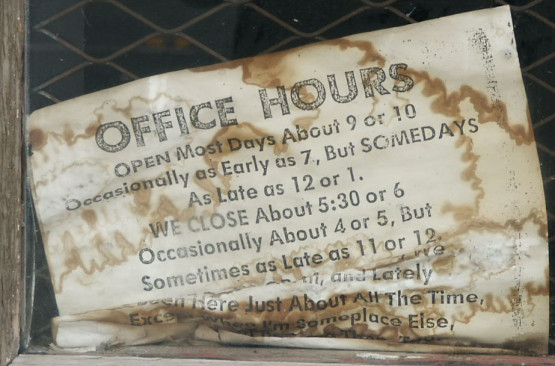Monthly Archives: April 2015
In Anti-federalist 74, Philadelphiensis wrote,
Who can deny but the president general will be a king to all intents and purposes, and one of the most dangerous kind too-a king elected to command a standing army.
And at the Constitutional Convention, South Carolina’s Charles Pinckney worried that
the Executive powers of the existing Congress might extend to peace and war, etc., which would render the Executive a monarchy, of the worst kind, to wit an elective one.
I understand why they worried about the military power and a standing army, but I’m not grasping why they thought an elected king was worse than a non-elected one. Any thoughts?
 Canada appears to be (formally) opening the door to ecigarettes.
Canada appears to be (formally) opening the door to ecigarettes.
Jesse Walker argues that Philip K Dick was right, the fear shouldn’t be that robots will become more man-like, but that we will be reduced to robots.
Good news! Japan may have passed peak suicide.
Officials in South Carolina and elsewhere have been very concerned about the illegal exporting of automobiles. Coincidentally, they’ve been seizing said luxury automobiles. The good news (depending on your POV) is that they’re backing off.
In a restaurant review that isn’t really a restaurant review, Jack Baruth investigates the male privilege of potential invisibility.
I don’t really buy Cyanogen’s alleged plan to steal Android from Google. I just don’t see how they get passed the referenced 800-pound entity. Judging by the closing, it seems like Cyanogen may feel the same way. Which is unfortunate, in a way, because some of the forced tying-in is beginning to grate. (I wouldn’t mind Google wanting me to use their products if their products were actually better or as-good as the alternatives.)
On paper, Sleepless in Seattle had serious problems. It’s a testament to the power of the Hanks-Ryan chemistry that it was as well-regarded as it was.
It’s Dawn on Ceres, as we look at the universe’s leftovers.
If they aren’t interested in taking over Pitcairn, maybe would-be seasteaders need to cozy up to the Chinese, offering to be human flagpoles in exchange for relative independence!
While Stand Your Ground laws can go too far, sometimes the laws governing how we can protect ourselves go too far in the other direction. In both The Practice and Boston Legal, there were episodes relating to a burden of proof for self-defense that I found troublesome, as their freedom depended on whether or not they could demonstrate that the deceased was moving in their direction.
I attribute one of the dumbest things ever said in politics to Fritz Hollings (D-SC), and his work on copyright has lead to infuriating results, but be can be so dang earnest sometimes. (No pun intended.) I can’t reveal it, but there’s a touching story involving him and someone that I know.
Is a five-year old Oklahoman a reincarnated film actor? (What’s odd about this link is that I’ve gotten it on Facebook, from about four okies that I know. All of whom are super-devout Christians.)
Mapping East Middle Earth.
Parma, Missouri, (pop 700) has a new mayor! Suddenly, though, they are without a police department and several other key officials:
Voters in Parma, Missouri voted in their first African-American female mayor.
Tyrus Byrd will be sworn in as mayor on Tuesday evening, April 14, at the Parma Community Building.
According to Mayor Randall Ramsey, five out of six police officers resigned this week, effectively immediately.
Mayor Ramsey said the city’s attorney, the clerk and the waste water treatment plant supervisor also turned in resignation letters citing “safety concerns.”
This is being portrayed as largely a racism or racism/sexism issue. I find myself thinking that there is more to it than that. The first thing is that… a town of 700 people has six officers? Really? Why? Even residents of Parma don’t seem to know:
Some say they’re not worried about their safety and it wasn’t necessary to have that many on staff for a city the size of Parma.
Some say they’re relieved about the situation and that Parma doesn’t have that many problems in town to require so many officers.
“I think it was pretty dirty the way they all quit without giving her a chance, but I don’t think they hurt the town with quitting because who needs six police for 740 people?” said Martha Miller of Parma.
Then there were the other officials. The city’s computers were apparently wiped on exit.
This doesn’t sound like run-of-the-mill racism (though it could be that in part – it often is with good ole boy networks). This sounds like corruption. The king is gone, so the kingsmen are heading for the hills either because the gang is up or to create a crisis to put the king back in power (at the next election – this metaphor has limitations). There is a good chance at least some of these people were getting paid to do very little, and since the gig was up, they were going to move on one way or another and this allowed them to do it on their own terms.
One of the interesting thing about Hillary Clinton’s totally expected announcement that she’s running for president is that her campaign is being called “Hillary for America.” Interesting less because of The West Wing connection and more because of the “Hillary” part.
It may not be exactly the same as the long list of celebrities known by their first names. But Hillary Clinton has become known simply as Hillary in bumper stickers and headlines, on Twitter and Facebook, around water coolers and in coffee shops.
Yet some Americans, mostly women, don’t think the former secretary of state, U.S. senator from New York and first lady should be called by just her first name.
“I think it’s pretty unjust,” said Monica Warek, 23, on a recent visit to Washington from New York City. “I think it shows the level of inequality that still exists in the workforce and just in general in society.”
As Clinton gets ready to kick off her campaign for the White House, some wonder whether calling a female candidate by her first name reinforces gender stereotypes.
Or does it make her seem more personable?
 I’ve generally taken pains to avoid referring to her as just Hillary. I haven’t been 100%, but I refer to her as HRC quite a bit, or Clinton when I don’t think she will be confused with her husband. The husband thing is what makes it difficult, and useful, to consider referring to her by her first name. But I have resisted for a couple of reasons:
I’ve generally taken pains to avoid referring to her as just Hillary. I haven’t been 100%, but I refer to her as HRC quite a bit, or Clinton when I don’t think she will be confused with her husband. The husband thing is what makes it difficult, and useful, to consider referring to her by her first name. But I have resisted for a couple of reasons:
The first I more generally prefer not to use informal names when referring to politicians and presidents specifically. I almost never referred George W. Bush as W or Dubya, much less Shrub. It’s part of a general preference of formality when dealing with our leaders.
The second is sexism, both baseless accusations and out of genuine concern. The article deals more with #2. I don’t think I would refer to Hillary Rodham Clinton as Hillary for a sexist reason. Whatever thoughts I had about her position as a teammate of her husband’s has not been the case for some time. Her tenure as secretary of state has done a great deal towards positioning her less as a teammate and more as an independent actor. And though I prefer Romney to Mitt, I would say the latter. And perhaps most pertinently, I almost exclusively use Jeb to refer to John Ellis Bush. The pertinence of the last being that the first name is for the exact same reason: To avoid confusion with more prominent people with the same surname.
 If Hillary Clinton wins the presidency, her tenure will make her “Clinton” throughout the same way that GWB became “Bush” throughout his. It’s the former president that gets the first-name treatment or some other qualifier. For Bill it will be Bill, for Georges it will be the H or the W. When GWB was president, I referred to his father as George H Bush, Bush the Elder, or the First Bush. Now that both are former presidents, I only rarely use Bush by itself – unless it’s completely obvious who I am referring to – and go with GWB or Bush the Younger.
If Hillary Clinton wins the presidency, her tenure will make her “Clinton” throughout the same way that GWB became “Bush” throughout his. It’s the former president that gets the first-name treatment or some other qualifier. For Bill it will be Bill, for Georges it will be the H or the W. When GWB was president, I referred to his father as George H Bush, Bush the Elder, or the First Bush. Now that both are former presidents, I only rarely use Bush by itself – unless it’s completely obvious who I am referring to – and go with GWB or Bush the Younger.
Since the campaign is called Hillary for America – and since she presently does not hold office – I will generally stop trying as hard as I do to avoid referring to her as just Hillary until she takes office.
By way of his selection of a Featured Image on this otherwise worthy post, Tod has more or less assured that I will not be going to the Front Page of Ordinary Times today until five more featured posts are put up.
 Britain’s Labour Party wants to do away with “non-dom” status, which is essentially preferential tax treatment for people whose primary allegiance is to another country.
Britain’s Labour Party wants to do away with “non-dom” status, which is essentially preferential tax treatment for people whose primary allegiance is to another country.
As elections in the UK approach, Ben Lauderdale gives a quick primer on UK’s political history.
Russell Saunders says he “probably” won’t #StandWithPaul, but this sounds like an endorsement to me! (Not really.)
Louis Jordan was lost at sea for over two months, and allegedly survived. Experts say it’s not as far-fetched as it sounds.
Should small theaters in Los Angeles have to pay union wages?
Sadly, Canada appears to be undermining its own census process. Even more than we did, it looks like.
“A Louisiana man on trial for murder has claimed that he thought the victim was an alligator.” // I think Florida Man needs to step up his game.
Ron Hira and Hal Salzman argue that the H1-B visa debates aren’t really about immigration. They’re about jobs, and people being laid off to make room for immigrants taking the jobs that Americans can’t and won’t do.
A Pennsylvania phony posing as a lawyer made partner and was president of the county bar.
I think there is some truth to this article about Gamergate ultimately being about a sort of cultural colonialism. I saw some of this when anime started to gain cultural traction. A non-trivial number of die-hards responded very unfavorably to the prospect of something not being “theirs” anymore.
I’ve never been big on the prospect of “unbundling” as I’ve long believed (and still believe) that the savings (including for non-sports fans) are often over-stated or non-existent. And… even if it does save money? Even that might not be such a great thing, depending on your perspective. Along those lines, even though I believe that cord-cutting will save money, the amount there too is overstated and could come at tremendous costs
Megan McArdle wrote a couple of pieces:
The first is on Viacom’s $785 million write-down, more than half of which was due to the falling value of reruns like “CSI,” “Community” and “30 Rock.” With advertising soft and people shifting away from cable, filling screens with a continuous loop of episodic dramas is no longer as lucrative as it once was.
This has a lot of implications: The value of those sorts of shows may fall, and if you are, like me, more of a fan of original programming that has longer story arcs, you may hope that this means more of the stuff you like and fewer police procedurals. (I still like me a good “Law and Order” marathon.) As well it may. But those cheap reruns also keep networks going during the day, when it doesn’t pay to run original content — and losing the revenue from cable syndication may mean producers demand more money to sell the rights to Netflix. In the long run, that could mean your Netflix subscription costs more.
As I say in conversations about piracy, one way or another, content-producers need to get paid. Television and film are not like music, where a relatively small fraction of the money made goes into production costs. And while high actor salaries play a role (and those could theoretically be cut with minimal loss of production value), there is reason to fear that if it does save of money, it will come at the cost of The End of the Golden Age of Television:
It has been the worst year in recent memory for cable networks, with MSNBC, the History channel, Bravo, BET, USA Network and Comedy Central all seeing double-digit declines in audience this year. In March, cable ratings were down about 10 percent from the previous year. With new streaming services stealing away viewers, cable TV has been hit with a Darwinian shake-out where only the most popular networks, such as HBO and ESPN, are able to find paying customers.
Web streaming is upending the neat arrangement long enjoyed between TV channels and cable providers such as Verizon and Comcast. Verizon pays ESPN and other channels a certain amount to carry their programming, a cost that gets factored into customers’ monthly bills. But with consumers complaining about paying for too many channels and switching to online streaming alternatives such as Netflix, cable firms are feeling the pressure to cut costs — and even drop channels, especially those with plummeting ratings.
The swift decline in cable has been particularly harmful for Viacom, which typically presses cable distributors to run all of its channels — including MTV, VH1, Comedy Central and Nickelodeon — or none of them. The company announced this week that it will cancel some shows and lay off staff as part of a broad restructuring plan.
A retraction of television shows, if it occurs, could be the worst of multiple worlds.
It used to be, back in the day, that there were only three major networks. Then four, followed by various attempts of varying degrees of success, but it was mostly the big three and Fox. Before cable (and even for a while after cable came around), everybody was watching those shows and so there was a cultural quality to it. The end of MASH being the quintessential example, along with Who Killed Laura Palmer and Who Shot JR, and more recently the end of Cheers and Seinfeld. Since then, the fragmentation of television audiences and the DVR have cost us some of that. But even if the number of shows goes down, we’re not going to get it back. Partly because we will still have DVR and binge-watching with us. But also because what we watch is likely to become much more constrained. You might have CBS’s service at the moment, while Bob from Accounting is watching stuff on Netflix. There would be no central clearinghouse like cable and satellite. And at the same time, it wouldn’t completely be unbundled anyway. It’s just that instead of CBS selling x-number of channels of varying value to Comcast, they’ll be selling the same number of channels directly to consumers (If you want Comedy Central, you also buy Country Music Television).
Or maybe they will find a way! There seems to be a psychological need to develop original content. A potentially glorious irrationality. I’m not even convinced that they have to really make money doing it. In the content business, nobody wants to be stagnant, and original content seems like a likely extension of that. Or alternately, we will see a proliferation of good but not quite so expensive productions. Or some combination of the two. That’s what I’m hoping on, anyway.
Mikhail Zinshteyn has a piece on 538 about the failures of the SAT to predict college success:
The College Board argues that college readiness can be measured by how well a student scores on the SAT, one of the many standardized tests it produces. A student who earns a 1550 on the SAT out of a possible 2400, the College Board says, has a 65 percent chance of achieving a B- average in her first year of college. Students who clear this threshold graduate from college after six years 69 percent of time, while those who score below 1550 graduate in six years just 45 percent of the time, according to the College Board. In 2014, more than half of SAT test-takers earned scores lower than 1550, a sign to the College Board that they’re unlikely to be college-ready. {…}
In the study, Hiss and his co-author broke down the high school transcripts and college performances of 123,000 students in 33 colleges and universities of various sizes and statures that did not require test scores as part of the admissions process. The authors compared students who did submit ACT or SAT scores to those who did not, granting the institutions anonymity in exchange for access to student admissions data.
Overall, students who didn’t submit their ACT or SAT scores posted high school GPAs that were similar to students who did. The report also found that among the accepted students, those with strong GPAs in high school performed reasonably well in college, while students with relatively strong ACT or SAT scores but lower high school GPAs finished with slightly lower college GPAs and graduated less frequently.
Interesting stuff. Using the SAT (or ACT or any standardized test) on its own does seem insufficient. It is nonetheless the standard we often use when comparing schools. But is it really used, to the exclusion of other factors like GPA, to determine collegiate readiness and admissions? I’d agree that where this happens it is a mistake. But I usually see some combination of test scores plus GPA plus class rank. The only question is how we’re allocating the percentages. Hiss wants to see us use the SAT mostly as a compliment, given that different schools have different GPA metrics.
That last part seems important to me, though. To the extent that we start using GPA more, the measure will taint itself. From Unfogged:
Admissions director: who do you want to send the letters out to?
Me: Everyone with at least a 3.5 GPA is eligible.
Him: That’s 90% of our applicants.
Me: What! How?!
Him: grade inflation. Some of the richest schools in Dallas and Houston will have their entire student body with GPAs upwards of 3.2.
Me: How are colleges supposed to make sense of that?
Him: First, we recalculate their GPAs and throw out all the non-academic courses. But probably 80% of our applicants are still going to be over a 3.5, recalculated. What we do is know the high schools individually, and you don’t compare individuals from different types of high schools. A 3.5 from [poor school in San Antonio] means something different than a 3.5 from [rich school in Dallas]. So you have to understand each school.
If this is already a problem in Texas, it seems likely to spread exponentially as teachers and schools realize they can get more kids into college with a more generous grading system. Which is far, far easier than a school teaching to or otherwise gaming a test. So the more you rely on it, the less reliable it becomes.
When I am comparing schools, the two metrics I look at are (a) Standardized tests scores (both the ACT and SAT) and (b) class ranking. I sort of assume that the grade inflation Heebie Geebie refers to is pretty universal (though if Hiss’s study is any indication, maybe I am overestimating it). Of course, class ranking is also fraught with danger. All schools aren’t created equal. I went to a particularly good school, so my class rank was relatively low (I missed the top quarter, barely making the top third, with a 3.6 GPA). The state schools back home rely heavily on class ranking, and this limited my options. (While schools in other states, aware of how competitive my school is, were talking scholarship.)
My wife’s high school, which was specifically geared towards the gifted and talented, refused to even provide a class ranking. Which was no matter, as she could have gotten into almost any school in the country and chose an out-of-state flagship school largely because it was a full ride scholarship.
Unlike GPA, you can’t fudge class ranking easily, but it has those holes.
The 69%/45% difference in the SAT doesn’t breed confidence, however. It suggests either that the false negatives are indeed high, or our universities (and/or support system) is dramatically failing almost a third of high-scorers (and perhaps some of the lower-scorers as well). Alternately, the high SAT score could be indicative of going into more competitive, higher-fail-rate schools? It’s really hard to say.
My own view (and I’m completely spitballing here) is that if push came to shove, you could probably get around 1/2 to 2/3 of young people to graduate, under ideal circumstances. The “ideal circumstances” does a lot of heavy lifting there, however. And I question the extent to which the added value matches or exceeds the cost of providing both the education and the ideal circumstances most conducive to graduation. This is one of the reasons why the cost of educating people in college (whether born by the student, the student’s family, or the state) is so important. The higher the cost, the more justification is required to send people to college.
Which always, always, always brings us back to the question that those of us who believe “Universal education isn’t the answer” have difficulty confronting. How do you decide? Every metric we have is flawed. Which brings us back to the cost of education, because with every increase, the consequences are that much greater.
 Peter Orszag signs on to the Georgist land tax.
Peter Orszag signs on to the Georgist land tax.
This is a great story. Men suck. Women are awesome.
Here’s a good interview on the aftermath of a (justified) cop shooting, and the toll it took on the shooter.
Kevin Carey argues in favor of a national university, making heavy use of technology as a way to address runaway costs. This idea might sound familiar to you. The George Washington angle is great.
Sweet: Turning a silo into the ultimate treefort.
A peek inside the birth tourism industry. In the greater scheme of things, this sort of thing isn’t likely to involve the kind of numbers to have an effect.
Finding a lost city in Mesoamerica.
Here’s a list of the 20 quirkiest cities in the US. Austin, New Orleans, and Portland taking the first three spots doesn’t surprise me… but Kansas City’s presence on the list (#8) does!
When politics and humor intersect, this cartoon seems to be the inevitable result.
Raising the minimum wage has some expected (though eminently logical) new supporters. Will they fill the void in Seattle?
Mother Jones actually has some nice words to say about the Washington Free Beacon. The WFB is… odd. Good news stories juxtaposed against obvious photoshopped images of birds combusting mid-flight due to solar panels. But it works, and it’s one of comparatively few conservative sites I read with devotion.
An Indian-American friend of mine argues that one of the main reasons that India never became a manufacturing hub the way that China did is because graft made it impossible. American-expat-in-China Matthew Stinson tweets of this New York Times article, that graft in China is so ubiquitous that it tends to go unnoticed.
The discussion of Indiana, RFRA, and anti-discrimination law and mandatory provision law (think contraception) brings up an argument I often hear: You might be able to let urban locations discriminate, but in more rural parts, you might run in to situations where they are the only X in town and the next one is two hours away!
This… is the case a lot less frequently than you think. And applies to remarkably few people. Sufficiently few that, on its own, it’s not really a compelling argument for national or even statewide policy.
I have lived and spent time in some pretty rural places. One of the things that surprised me is that even in pretty small towns, there are often more than one of just about everything. Callie, Arapaho, has between 4,000 and 5,000 people in it. If we take the county, and even include the neighboring county, you’re still in the very low five digits with a population density of between 1 and 2 people per square mile. Callie has four auto repair shops three pharmacies, three auto mechanics, two coffee shops (more than two, really), two medical clinics, two barber shops, two veterinarians, and two grocery stores, and two towing services. There were ones of some things, and there were none of a lot more.
This is not to say that there aren’t any one-pharmacy towns. But they’re hard to find. First of all, because the cut-off to being able to support two pharmacies seems to be somewhere in the four digits, that includes a whole lot of people we consider to be Rural Americans. Even relatively poor counties often have more than one, or go back and forth between one and two indicating a danger in taking the community for granted.
I blame television.
In the Andy Griffith show, Mayberry had one of just about everything. There seemed to be one of a lot of things in Twin Peaks, too (which technically had 50,000, but only because the studio made them change it from 5,000… trust me, it was a 5,000 town). But that’s a casting decision. Keeps things simple.
Now, there is the phenomenon of places in small towns closing. So a county that has two may go down to one. But… a town with only one may go down to none.
The towns to the east, in the neighboring county, was a single-pharmacy town. But it closed, right about the time that the third pharmacy in Callie opened up. Which is often how it goes. Even within small towns, there is a degree of consolidation. A place in some outlying small town goes out of business in favor of something in the county seat. That sort of thing.
Which brings me to the next thing, which is that as daunting “driving 60 miles to the next-nearest [X] seems”… it’s also a fact of life when you live in the middle of nowhere. My wife and I would drive five hours to get to the airport. To some extent, that’s part of the decision you make when you live in rural America. It would definitely suck if the only pharmacy in town didn’t do contraception, but others live in towns without a single pharmacy. More do, I suspect, though for them “the nearest pharmacy” is likely to be located next to another pharmacy or two. And a store where you need to run errands anyway.
In the case of contraception, I would add, even in some rinky-dink conservative town, a pharmacy that refused to sell one of the most commonly prescribed drugs on the market would have serious problems. If you’re operating out in the middle of nowhere, I’m not sure how much business you can afford to turn away. especially when you’re not just turning away the business for those particular drugs, but often the families of people who need it because they’ll just pick up their other prescriptions when they go to the county seat or the next county’s county seat.
It is trickier with anti-discrimination legislation, but the scenarios I see people concoct sometimes contradict my experience. The things I would most worry about being gay or a minority in ruralia isn’t that “the only barbershop in town won’t cut my hair” but “some employers won’tl hire me and I’m having trouble getting a lease.” My concern for the latter (two) is why I am sympathetic to anti-discrimination legislation, though it has less to do with places where there is the only X in town, and more to do with cultural contagion that spreads to some larger places to, as well as with the fact that job markets and housing markets can be awfully tight – even in larger towns and cities – and a single rejection can have significant consequences.


